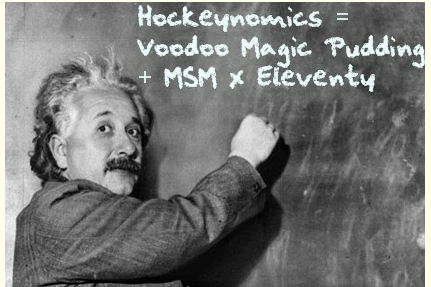Search
Recent comments
- breeding insanity....
52 min 39 sec ago - american "diplomacy"
3 hours 49 min ago - deceit america....
6 hours 7 min ago - police-state....
15 hours 48 min ago - the war continues....
16 hours 36 min ago - scott is angry.....
23 hours 37 min ago - a catastrophe?....
1 day 3 hours ago - 3Xwars is 3Xpeace?....
1 day 5 hours ago - futile trousers....
1 day 5 hours ago - reading reality....
1 day 6 hours ago
Democracy Links
Member's Off-site Blogs
the morning after .....

from Crikey …..
Stimulating hypocrisy from Hockey: Joe's changed tune
With incoming Treasurer Joe Hockey now publicly musing about providing fiscal stimulus to the economy out of concern about how weak it is, let’s look back at the Coalition’s best arguments against stimulus when Labor used it during the financial crisis ...
A weak economy is no justification for spending.
In September 2009, the June quarter national accounts showed the Australian economy was growing at 0.6%. The budget in May that year had forecast unemployment to rise from 6% to 8.25%. In September, unemployment was at 5.8%. That was when then-shadow treasurer Joe Hockey said that the GDP numbers showed it was time "to pull back on the spending ... to pull back on its massive spending program".
"The proof today in the accounts," Hockey explained, "is that the money being spent over the next four years by the Rudd government will be about politics and not about economics. The outcome today is proof positive that Australia is resilient and capable, and if we continue to spend money the way the Rudd government is, we will have higher taxes and higher interest rates. Today’s a warning bell for Mr Rudd."
Australia’s most recent GDP growth rate is 0.6% and unemployment is now at 5.8% -- just like when Hockey spoke. Unemployment is currently forecast to reach 6.25% next year, not 8.25%.
According to Hockey's 2009 argument, it's time to pull back on spending.
Borrowing for stimulus crowds out the private sector and drives up interest rates.
"A tighter fiscal policy would not have soaked up so much of the scarce available capital market resources, lessening the chance of crowding out of private sector borrowers," Hockey said in August 2009. "We must ensure that fiscal policy does not result in the government crowding out private sector access to affordable credit in a growing economy," he said a few months later. The dead hand of government borrowing "crowding out" the private sector and lifting interest rates became a Coalition theme.
"It’s why I have been so resolute in my opposition to the reckless accumulation of debt by government," said Hockey. "That debt is placing upward pressure on interest rates domestically and has an effect internationally, making it more difficult for enterprise"
Four years later, Commonwealth net debt: GDP has gone from negative when Hockey spoke to 11% of GDP. Under the crowding out thesis, this must mean interest rates have soared and business, as opposition finance spokesman Andrew Robb put it later, would be unable "to access finance for love or money".
The RBA cash rate is currently 0.5 of a point below where it was when Hockey spoke in 2009. Small and big business lending rates have been falling for two years and according to the Reserve Bank are now equal to or lower than they were in 2009 at the depths of the financial crisis. As for crowding out, the RBA shows business investment even after the peak of the mining boom remains higher than in 2009, when Hockey warned business would be unable to access credit.
Stimulus doesn't create jobs.
"It was the automatic economic stabiliser of the exchange rate and the work of the Reserve Bank which restarted our economy," said Robb in 2012. Any other claim was a "deceit" that "has been used to justify borrowing and spending of $87 billion and more".
In fact, it destroys jobs.
Both then-opposition leader Malcolm Turnbull and Hockey claimed in early 2009 that the Rudd government was in fact destroying jobs with its stimulus and bank deposit guarantee policies, although Hockey struggled to give an example when repeatedly asked for one by Leigh Sales.
At that point the number of employed people was 10.9 million. Two years later employment stood at 11.4 million, with the same (in fact, marginally higher) participation rate. Just under half a million jobs had been created in the period after Hockey spoke.
For that matter, low interest rates are more important than jobs.
At a media conference at Parliament House in September 2009 (the transcript, oddly, never emerged from Hockey's office) on the August 2009 jobs figures - same unemployment rate as now - Hockey was asked by a journalist, "you're saying it's more important to keep interest rates low than spend money to keep people in work?" "Yes," Hockey replied.
The economy may well need some additional fiscal support in coming months. Hockey has already flagged the Coalition will not be aggressively cutting spending to return quickly to surplus and flagged that if stimulus is necessary, monetary policy is near the end of its capacity to provide it. That is, Hockey is going about the task of managing the economy sensibly.
Too bad that when Labor did the same, he could do nothing but attack it. Labor has every right to repay him in kind.
- By John Richardson at 16 Sep 2013 - 11:35pm
- John Richardson's blog
- Login or register to post comments
interview with joe hockey...
http://www.abc.net.au/news/2013-09-19/clarke-and-dawe-chewing-through-the-agenda/4968004